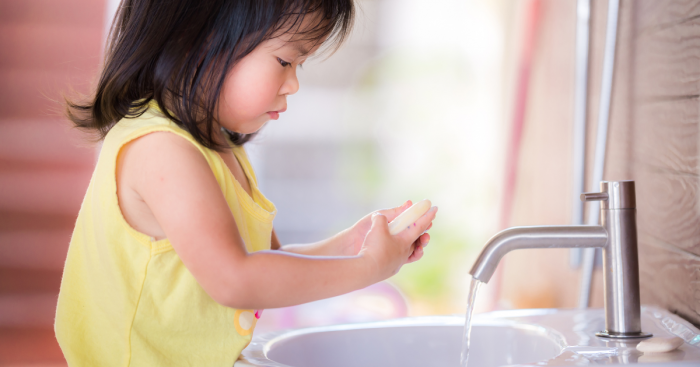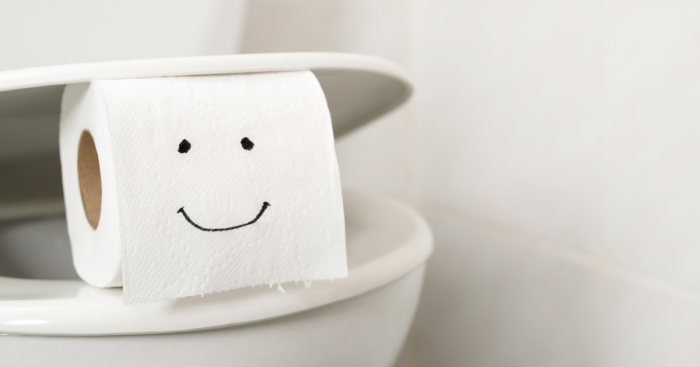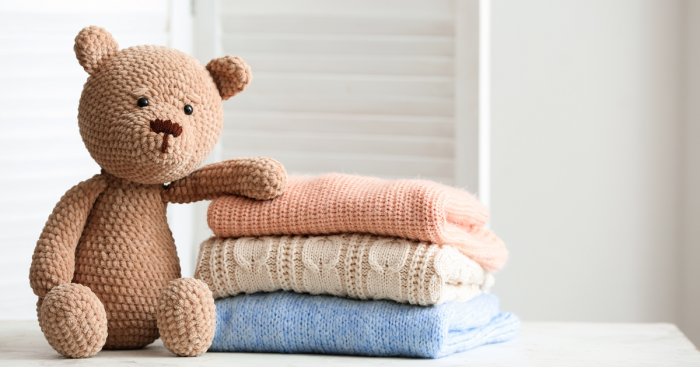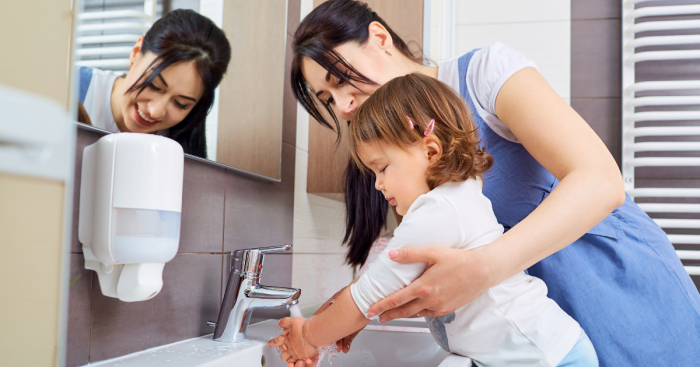Personal hygiene can be defined as a collection of habits adults and children perform to keep their bodies clean and healthy. Simply put, personal hygiene is self-care and it must be taught to children from early childhood because at their age, they don’t understand much about why it is important to practice these habits.
Why is Practicing Personal Hygiene Important
Practicing good personal hygiene is important because it has positive effects on a person’s physical as well as emotional and mental health.
- On the physical side – keeping the body clean helps keep parasitic, bacterial, viral or fungal infections and illnesses away. It also stops the person from spreading these germs to others thus helping to keep the rest of the family and the community healthy. A lack of personal hygiene can cause hygiene-related diseases such as tooth decay, body and head lice, pinworms, scabies and so on, and further exacerbate medical and health conditions a person may already have.
- On the mental and emotional side – keeping neat and clean makes a person feel confident and happy. It also promotes social acceptance, whether in the workplace or in school. For children, their first major social interaction where they are exposed to a large and diverse community is at school. Being accepted by his peers and even teachers impacts his self-esteem and growing independence, as no child wants to be isolated or belittled. Forming good personal hygiene practices from a young age can have a positive effect on the child’s growth and development.
The Top 7 Areas for Personal Hygiene for Children

There are many areas of personal hygiene that should be inculcated from early childhood so that lessons learnt can form habits that last a lifetime. Here are the top seven areas:
1: Washing Hands
If there’s one lesson we have learnt from the Covid 19 pandemic, it’s the importance of washing our hands. Most germs are spread through hand contact as it is the primary medium for bacteria and viruses to enter our bodies.
Children are often touching things. They go out to play, pick up things or they move around the house, and grab anything and everything within their reach. It is out of their natural curiosity to learn about the world around them. But then they also tend to pick up food with those same fingers and put them in their mouths without first washing their hands.
Dirt and germs on hands often go unnoticed. Therefore when you begin teaching personal hygiene to your children, start with handwashing first.
Regular handwashing can reduce the chances of spreading diseases such as diarrhoea or dysentery, hand-foot-mouth disease which Malaysia had a large outbreak of in 2018, and even Covid 19. Teach them the step-by-step process of massaging the fingers, palms and back of hands with soap and then rinsing them with clean running water.
Teach them to wash their hands after using the toilet, playing outdoors or at a theme park, touching the pet, before eating any food, and of course after sneezing or coughing. Coughs, colds and the flu are spread by contact, and also by droplets in the air. Tell your children not to touch their eyes, nose and mouth with unwashed hands or share dishes, towels, and toys with unwashed hands when they are sick. When going out to places where there may be no running water or soap available, make sure to bring along wet wipes or a hand sanitizer.
2: Oral Hygiene
One of the most important habits to start your children on from very young, is keeping to the routine of brushing their teeth. Tooth decay, cavities, gum disease, bad breath and other oral problems can cause a child to be in a lot of pain, not to mention lessen their chances of getting a healthy set of good permanent teeth later on.
Babies are born with no teeth but teeth soon start erupting from under the gums by the time they are six months old. Their teeth should be cleaned as soon as they emerge because tooth decay can develop as soon as teeth appear. As your child’s teeth come in, you should start caring for them but by the time they are three to five years of age, they should have learnt how to hold the toothbrush and brush their teeth on their own. At this stage you will have to assist and check of course.
By eight years of age when permanent teeth have started to come in, children would have developed the fine motor skills needed to brush and floss their own teeth unsupervised.
Dentists recommend that children brush their teeth twice a day. This practice should be kept up for the rest of their lives.
3: Toilet Hygiene

Once your child is old enough to use the toilet on their own, teach your children the correct way of maintaining toilet hygiene. Teach them to wash, wipe, flush the toilet and then wash their hands after that.
The toilet is one of the places in the house that has the highest amounts of germs. In Asian homes such as ours, the toilet is often wet. Because a toilet is shared by many in a home and in public places, viruses, bacteria and other micro-organisms are given the opportunity to easily grow on toilet surfaces, seats, floors, shower curtains and walls. Some of the most common microbial contaminants found in toilets are E.Coli, Salmonella and Staphylococcus Aureus which cause diarrhoea, dysentery, cholera and food poisoning. This is the reason why a toilet must always be washed and kept clean and fresh.
4: Showering and Shampooing
In our Malaysian heat and humidity, everybody sweats. Children sweat a lot since they are normally more active than adults and they run around and play all day.
The body has several million sweat glands. Sweat on the body traps dirt, oil and grime. On top of that, when bacteria break down the sweat, the process creates a smell or body odour. Washing the body will remove all this dirt, dead skin, and bacteria and help in preventing skin irritation and body odour.
When the children are young, you will have to bathe them but once they are old enough to wash themselves, supervise and explain why cleaning every inch of the body during bath time is important.
Encourage children to bathe twice a day. The best time is before they go to school to freshen the mind and body for the day ahead, and after they come back. Tell them to gently scrub the whole body taking care of areas such as the armpits, legs, feet, between the toes, behind the neck, the back, the groin area and of course, the face and ears.
The same applies to shampooing the hair. Dirty hair can cause problems. Like the rest of the skin, the scalp produces natural oil called sebum. Some people produce more sebum than others which can build up on the scalp.
Washing the hair less frequently can have dead skin, dirt, residue and sweat along with sebum build-up causing an itchy scalp, greasy hair, and an unpleasant odour, which increases the risk for infection and all kinds of scalp and hair conditions. Poor hair hygiene can promote dandruff, lice, ringworm and other scalp infections.
Wash your children’s hair with the appropriate shampoo. Use gentle ones such as baby shampoo. Only when they grow older should they transition to adult shampoos. Be sure to comb their hair to prevent tangles and teach the older children to wash, comb and brush their hair regularly. Also teach them not to share personal things like combs, pillows, caps and hats.
5: Wearing Clean Clothes

Clothes that have been worn should not be worn again after a bath or after one has changed out of them. Adults know that but children don’t, unless told why. Wearing freshly laundered clothes after a bath makes us feel refreshed and happy.
Wearing dirty clothing is one of the reasons for emitting a foul smell from the body which can create a bad impression on others. It can also be the reason for skin infections because sweat, food stains, dirt, grime and body oils get absorbed into the clothes we have worn for the day. Bacteria and fungi feeding on these absorptions multiply on dirty clothes and can cause health problems.
Human sweat is rich in water and minerals like sodium and chloride which contributes to fungal growth. This is why it is also important to completely dry even freshly laundered clothes because dampness, humidity, heat and moisture build-up in the fabric of the clothes breed fungus such as mold and mildew − which explains why improperly dried clothes give off a stale, musty smell.
Explaining the importance of clothing hygiene is a crucial part of teaching personal hygiene to children. Not only does it teach them the need for daily cleanliness, it also teaches them things like socially acceptable norms.
6: Foot Hygiene
Our bare feet touch the floor everyday in our Malaysian homes. Feet, along with the rest of the body, sweat too. This sweat accumulates between the toes and around the creases under the feet and on the soles, picking up dirt and bacteria from off the floor and making the feet dirty.
Sweaty feet occur when are encased in shoes. School children wear their school shoes all day. In our hot and humid climate, it is important that we wear well-fitting, protective and breathable shoes. For growing children, their shoe sizes should be checked and changed accordingly to accommodate growing feet.
Many foot problems and diseases can be prevented through healthy foot hygiene. This includes washing the feet often after a whole day of stepping on grime and dirt on the floor, washing in between the toes, drying them properly and also clipping the nails and cutting them straight across to prevent ingrown toenails.
The feet should also be checked for cuts and sores, swelling, dryness and also for infected toenails.
Children should wear a fresh pair of socks everyday and have their shoes aired and dried out between each wearing. This is to prevent a common foot infection that is caused by sweaty, wet feet that are often confined in tight fitting shoes.
Called Athlete’s Foot or tinea pedis, the infection is caused by fungi that thrive in warm, dark and moist environments. The infection got its name because it often affects people whose feet tend to be damp and sweaty such as athletes. Athlete’s Foot can affect any part of the foot but most often it affects the space between the toes. Symptoms include an itchy, scaly rash and it is very contagious. Good hygiene like keeping the feet and toes clean and dry and changing the shoes and socks regularly can help prevent and control Athlete’s Foot.
7: Washing Fruits and Vegetables Before Eating Them
Children must be taught to always wash the fruits and vegetables they see on the table or in the refrigerator before they eat them. Eating vegetables and fruits should be encouraged but not before ensuring they are thoroughly washed first.
Consuming unwashed vegetables and fruits comes with a risk of getting food poisoning because dirt, soil and microbes such as Escherichia coli, Salmonella and Listeria are likely to lace the surfaces of unwashed food.
To help prevent food poisoning, teach children never to eat unwashed fresh produce. Also teach them that only fruits or vegetables where the skin or entire plant is eaten raw such as apples, strawberries, grapes, guava, cucumbers, lettuce and so on, need thorough washing, but not fruits like bananas where skin has to be peeled away before eating.
Children should also be taught not to eat food of any kind that has been dropped on the floor.
The Best Ways to teach a Child Personal Hygiene

The best ways to encourage good hygiene habits in children is to start them young, and to teach by example. Be a good role model, establish good hygiene habits as an everyday responsibility, check to see if they keep it up, never scold or punish if they forget but reward when they do good, and promote personal hygiene as a form of self-love and self-care for all in the family.




